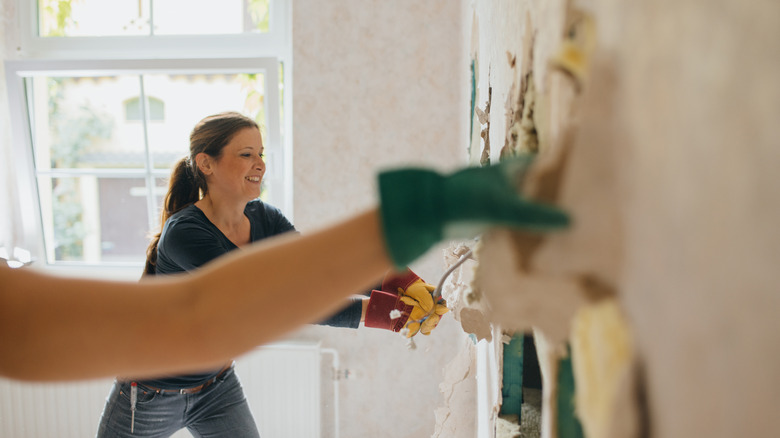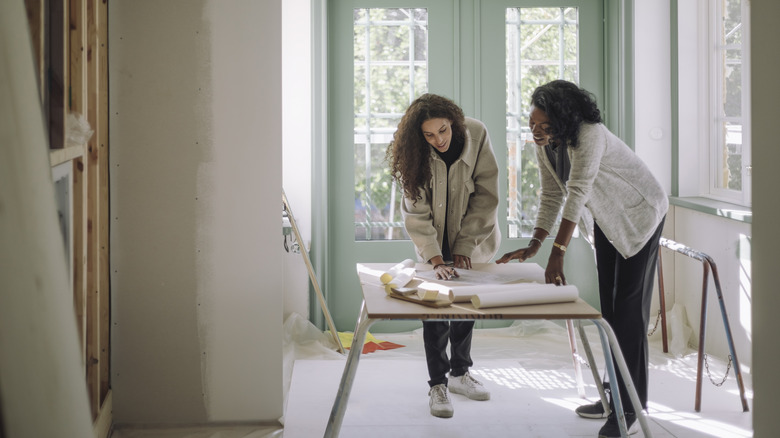Should You Stay Or Temporarily Move Out When Renovating Your Home?
Should you stay or go when your home is in full-on upgrade mode? It's a decision you'll need to make as you prep your home for a renovation. Unfortunately, there isn't a clear-cut answer on whether or not you can remain living in your home while you're remodeling. There are several factors at play, including how much of your home is being remodeled, which areas are unusable, and what type of work is being performed. Your personal preferences, budget, and the work timeline could also impact your decision. Safety is a key consideration when evaluating the situation. Renovations expose your family to fumes, dust, tools, and chemicals that could be potentially dangerous, so you may choose to move out to avoid those risks.
Moving out of your home is easier in many ways because you're not living in the middle of the mess and chaos of a renovation. Your contractor may prefer you to leave as well. However, not everyone has the means to leave for an extended period. Renting a space is expensive, and you may not have family close by for a free stay.
Staying at home is a cost-effective option and lets you avoid the hassle of a temporary move. Life won't be as convenient as normal, though. Plus, some renovation situations could potentially put your family at risk if you remain onsite. Evaluating the details of your project helps you decide if you need to move out.
The case for staying in your home
Remaining in your home means you don't have to pack for a short-term stay elsewhere. You're still in familiar surroundings, which could be helpful for kids who have an established routine. Plus, you have access to all of your belongings, so you don't have to worry about forgetting something important when you pack. Even if you're staying with family or friends, moving into a temporary space often feels uncomfortable and could leave you feeling stressed. It even changes your commute to work and school.
When you stay in your home, you're close to the renovations. If you're doing some or all of the work yourself, you can easily start and stop projects as your schedule allows without traveling back and forth between your temporary housing. When you hire contractors to do the renovation work, you're there to answer questions, keep an eye on your belongings, and monitor the quality and efficiency of their work. You might notice issues sooner when you're around the construction every day. If you decide you want to go in a different direction or the contractor has a decision for you to make, you're already there to consider the options and offer your input.
Staying in your home is one way to save money when renovating. If you're doing a massive remodeling project, you could be out of your home for weeks or months. Unless you have a place to stay for free, the costs for a hotel room, short-term apartment lease, or vacation rental add up quickly. That could affect your renovation budget if you don't factor those costs in.
The case for moving out
Even though you're in your home, life won't be normal during renovations. You may be restricted to certain parts of your home or lose access to key functions. If you're remodeling your kitchen, cooking at home becomes a challenge. Renovations to your main bathroom limit how many toilets you have in the home and could eliminate your only shower or bathtub. For some people, the inconvenience of being around loud, potentially messy construction is reason enough to move out of the home. Being in a different location gives you a break from the sometimes-uncomfortable environment when renovations are happening.
Moving out also reduces your exposure to potential safety risks. Even if you block off areas you're renovating, your kids could wander into those spaces and come into contact with dangerous tools or hazardous materials. Construction activities may fill your home with dust and fumes that range from irritating to dangerous. Another safety concern is having different contractors come in and out of your home. Doing research when hiring a home remodeling contractor helps you find reputable companies, but your family could still come into contact with untrustworthy individuals.
Leaving your home also gives the contractors more room to work. They don't have to extend effort to stay out of your way, and they may have more room to set up their equipment. An empty house allows workers to complete jobs on their schedule rather than stopping the work early to accommodate your routine. Making the job easier for the contractors could help your renovations get done faster, which gets you back in your home sooner and could save on costs.
How to decide if you should stay or leave during renovations
Evaluate the extent of the renovation project and identify the areas that will be off-limits to your family. If you're going to gut your home versus doing mostly cosmetic upgrades, moving out will likely be easier. Talk with your contractor to find out what types of safety risks you might face, such as hazardous fumes or dust. If you have an older home, the renovations might involve removing dangerous materials, such as lead or asbestos. Thinking about how those restrictions and projects will affect your routine and safety help you decide if you can live with the inconvenience and risk temporarily.
The timeline of projects could also help you decide. If you're staying, you need a place to sleep, clean up, and prepare or eat food. Consider moving out temporarily during the potentially dangerous portions of the renovation or during periods when you won't have access to those necessary spaces.
If you have young children, moving out could help them stay safer and sleep better away from the construction noise. Family members with allergies or sensitivities may also need to move out to avoid irritating dust and fumes. Moving out may also be safer if anyone relies on medical equipment that needs to be plugged in or sanitized, especially if the electricity or water supply might be shut off during part of the work. Consider how the renovations might affect family members with mobility issues who can't access certain parts of the home for necessary tasks, such as sleeping or using the bathroom.



